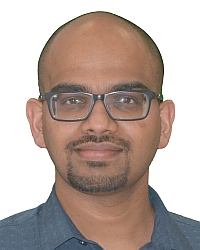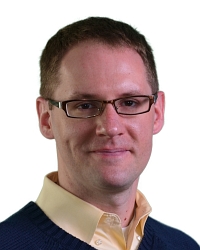TR2023-138
Physics-Constrained Deep Autoencoded Kalman Filters for Estimating Vapor Compression System States
-
- , "Physics-Constrained Deep Autoencoded Kalman Filters for Estimating Vapor Compression System States", IEEE Control Systems Letters, DOI: 10.1109/LCSYS.2023.3334959, November 2023.BibTeX TR2023-138 PDF
- @article{Deshpande2023nov,
- author = {Deshpande, Vedang M. and Chakrabarty, Ankush and Vinod, Abraham P. and Laughman, Christopher R.},
- title = {{Physics-Constrained Deep Autoencoded Kalman Filters for Estimating Vapor Compression System States}},
- journal = {IEEE Control Systems Letters},
- year = 2023,
- month = nov,
- doi = {10.1109/LCSYS.2023.3334959},
- url = {https://www.merl.com/publications/TR2023-138}
- }
- , "Physics-Constrained Deep Autoencoded Kalman Filters for Estimating Vapor Compression System States", IEEE Control Systems Letters, DOI: 10.1109/LCSYS.2023.3334959, November 2023.
-
MERL Contacts:
-
Research Areas:
Abstract:
Physics-based computational models of vapor compression systems (VCSs) enable high-fidelity simulations but require high-dimensional state representations. The underlying VCS dynamics are stiff, constrained by conservation laws, and only a small fraction of states can be measured. While recent advances on constrained extended Kalman filtering (EKF) have provided a systematic framework for estimating VCS states via simulation models, two major bottlenecks to efficient implementation include: (i) expensive forward predictions requiring customized stiff solvers; and, (ii) frequent and computation- ally expensive linearization operations on high-dimensional nonlinear models. In this paper, we circumvent these bottlenecks by constructing deep autoencoder (AE)-based state-space models (SSMs) from simulation data for which both forward predictions and linearization operations via automatic differentiation can be performed efficiently. In addition, we incorporate physical constraints based on pressure gradients explicitly into the autoencoder, and demonstrate, on a Julia-based high-fidelity simulator, that the physics-constrained model improves the estimation performance compared to a AE-based SSM that does not enforce physics.
Related News & Events
-
NEWS MERL researchers present 9 papers at ACC 2024 Date: July 10, 2024 - July 12, 2024
Where: Toronto, Canada
MERL Contacts: Vedang M. Deshpande; Stefano Di Cairano; Christopher R. Laughman; Arvind Raghunathan; Abraham P. Vinod; Yebin Wang; Avishai Weiss
Research Areas: Artificial Intelligence, Control, Dynamical Systems, Machine Learning, Multi-Physical Modeling, Optimization, RoboticsBrief- MERL researchers presented 9 papers at the recently concluded American Control Conference (ACC) 2024 in Toronto, Canada. The papers covered a wide range of topics including data-driven spatial monitoring using heterogenous robots, aircraft approach management near airports, computation fluid dynamics-based motion planning for drones facing winds, trajectory planning for coordinated monitoring using a team of drones and a ground carrier vehicle, ensemble Kalman smoothing-based model predictive control for motion planning for autonomous vehicles, system identification for Lithium-ion batteries, physics-constrained deep Kalman filters for vapor compression systems, switched reference governors for constrained systems, and distributed road-map monitoring using onboard sensors.
As a sponsor of the conference, MERL maintained a booth for open discussions with researchers and students, and hosted a special session to discuss highlights of MERL research and work philosophy.
In addition, Abraham Vinod served as a panelist at the Student Networking Event at the conference. The student networking event provides an opportunity for all interested students to network with professionals working in industry, academia, and national laboratories during a structured event, and encourages their continued participation as the future leaders in the field.
- MERL researchers presented 9 papers at the recently concluded American Control Conference (ACC) 2024 in Toronto, Canada. The papers covered a wide range of topics including data-driven spatial monitoring using heterogenous robots, aircraft approach management near airports, computation fluid dynamics-based motion planning for drones facing winds, trajectory planning for coordinated monitoring using a team of drones and a ground carrier vehicle, ensemble Kalman smoothing-based model predictive control for motion planning for autonomous vehicles, system identification for Lithium-ion batteries, physics-constrained deep Kalman filters for vapor compression systems, switched reference governors for constrained systems, and distributed road-map monitoring using onboard sensors.
-
NEWS Ankush Chakrabarty gave a lecture at UT-Austin's Seminar Series on Occupant-Centric Grid-Interactive Buildings Date: March 20, 2024
Where: Austin, TX
Research Areas: Artificial Intelligence, Control, Data Analytics, Dynamical Systems, Machine Learning, Multi-Physical Modeling, OptimizationBrief- Ankush Chakrabarty, Principal Research Scientist in the Multiphysical Systems Team, was invited to speak as a guest lecturer in the seminar series on "Occupant-Centric Grid Interactive Buildings" in the Department of Civil, Architectural and Environmental Engineering (CAEE) at the University of Texas at Austin.
The talk, entitled "Deep Generative Networks and Fine-Tuning for Net-Zero Energy Buildings" described lessons learned from MERL's recent research on generative models for building simulation and control, along with meta-learning for on-the-fly fine-tuning to adapt and optimize energy expenditure.
- Ankush Chakrabarty, Principal Research Scientist in the Multiphysical Systems Team, was invited to speak as a guest lecturer in the seminar series on "Occupant-Centric Grid Interactive Buildings" in the Department of Civil, Architectural and Environmental Engineering (CAEE) at the University of Texas at Austin.


